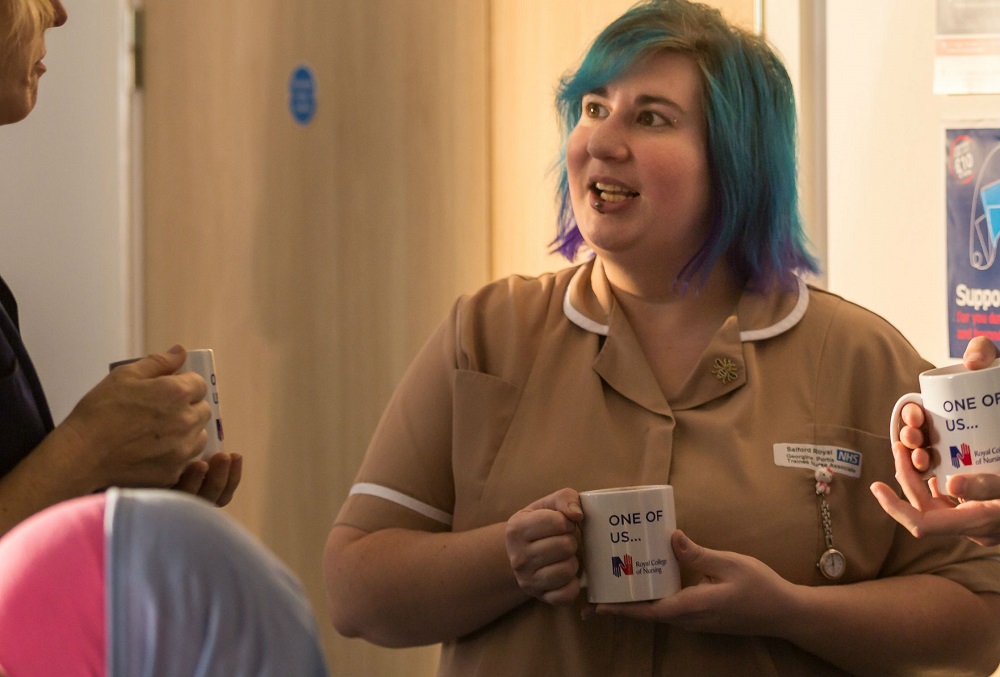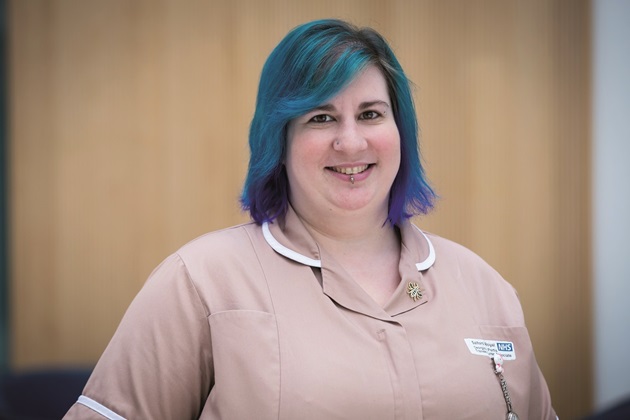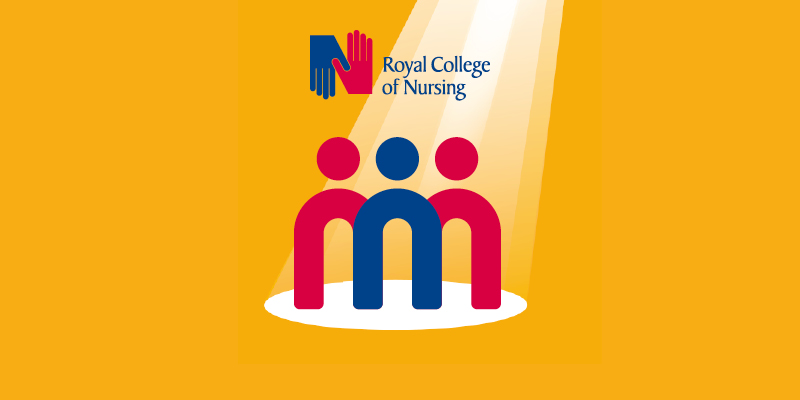Starting out
There’s no such thing as a standard day for me. Some days I work as a health care support worker, other days are more focused on learning. Sometimes finding the balance can be difficult as unlike nursing students my role isn’t supernumerary and the job still needs to get done.
When I first started I had to learn everything completely from scratch so we focused on the basics such as how to wash someone or maintain skin quality. We’re encouraged to ask questions about medication rounds so we learn and understand more about things like blood sugar monitoring and skin conditions. I write up notes but everything is checked and signed off at this stage of my training.
I’ll find out if I’ve made it to year two at the end of January when I present my documentation for sign-off in a meeting with my university tutor and my clinical educator. I’ll present my portfolio, learning diary, reflective pieces and evidence of self-learning.
It’s hard work. My training is with Salford University and I’ve had to pass assessed role plays, essays, practical exams and presentations. In one practical exam I was tested on an emergency assessment of a deteriorating patient and had to give references and the logic behind my thinking. The pressure is on and you’re only allowed one resit so I was thrilled when I passed with a mark of 95%.

Involve us
“What can you do?” That’s a regular question from registered nurses. I tell them I can do most things if you show me how. Some other trainee nursing associates (TNAs) I know have had less positive reactions though and have faced some resentment because we’re paid while we’re training. Others have commented that we’re “a state enrolled nurse with another name.”
There are just two TNAs on my current placement but it’s usually just me as there are only nine of us in my trust. So while right now I feel a little isolated, I know there are thousands of us out there and we’re leading the way for many more TNAs in the future. So if you see a TNA on the ward, involve us and don’t be afraid to ask us questions. Give us the opportunity to learn. If you’re a specialist nurse, tell us why you’re seeing my patient, help us understand. We’re a new part of your team and we need to work together.
'Not a separate profession’
The RCN recently responded to a Department of Health consultation on the regulation of nursing associates (NAs) in England. The College said it must be absolutely clear that the nursing associate role is not a separate profession, but a new role within the nursing family that works under the delegation of the registered nurse (RN). The RCN has called for urgent guidance on the precise relationship between NA and RN in terms of delegation and accountability.








